POST+CAPITALIST CITY 4#Move - Winning Projects
By Bustler Editors|
Monday, May 20, 2013
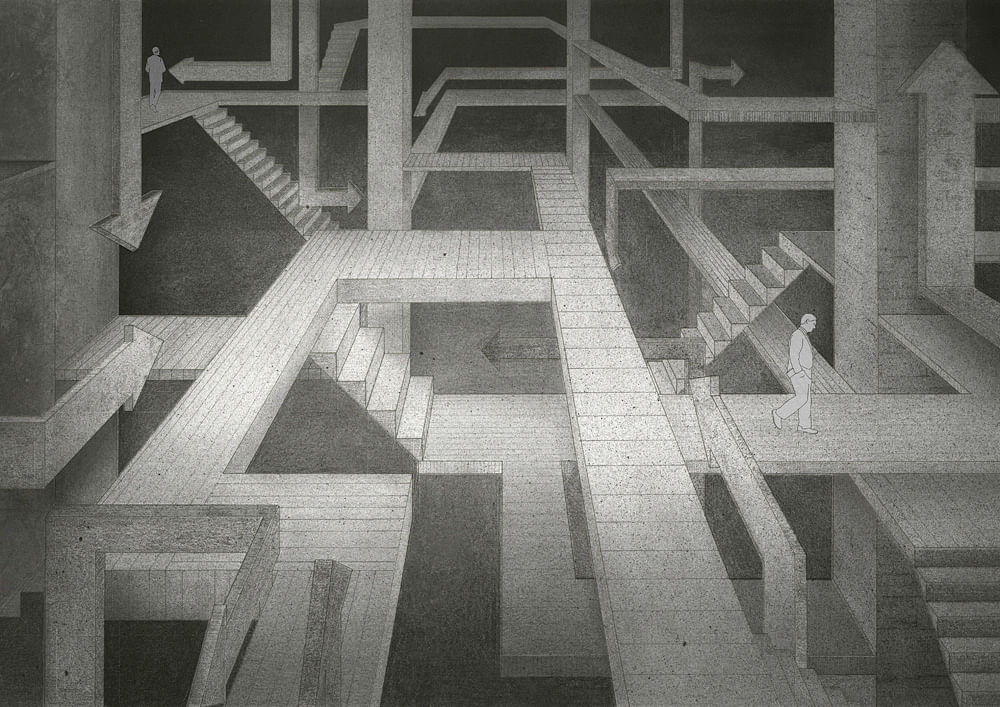
Related
The international ideas competition series POST+CAPITALIST CITY has announced the winners of its last quarter, 4#Move. Previous installments focused on the issues of 1#Shop, 2#Work, and 3#Live.
From the competition brief: "Could we imagine an alternative society in which the free movement of people takes part of their human rights? If people could follow the path of the internet and the migration of information, what would happen to our society? Would our ability to move depend on money and how would it influence tourism? How can we deal with the freedom of movement and borders? How could we overcome the dilemmas of urban mobility? Would there be a changing urban aesthetic relating to urban space and technologies of transport and communication? What could be the future of the pedestrian? And how could our movements shape the urban landscapes and our daily lives in the cities?"
These are the three winning concepts:
First Prize: Pilgrimage, a Dystopia
by Sarah Vaz (USA)
Pilgrimage, a Dystopia
Due to cultural homogenization in the twenty first century, humans have evolved to respond to only one common signifier. Around mid-century, the arrow was found to be the single universally understood and accepted symbol, and was thus adopted as the principal communication tool of the first world. Other less universal tools, such as language or complex imagery were too culturally loaded, and consequently, were abandoned. A modern world needed signs that were not burdened with history, that were not exclusive to particular groups.
Over time and across the globe all other symbols were lost, purged or buried. At last the world was left with one single means of expression: an indicator of the direction of movement. With nothing left but this, people began building monuments of the indicator. One cannot build an indicator with nothing to indicate, and since the people were capable only of building the indicator, they built indicators indicating indicators. And so, the building of one monument led to the building of a complex network of signifying signifieds. The resulting labyrinth became so complex that it was impossible to determine for certain if it had any beginning or end: all that could be confirmed was perpetual movement.
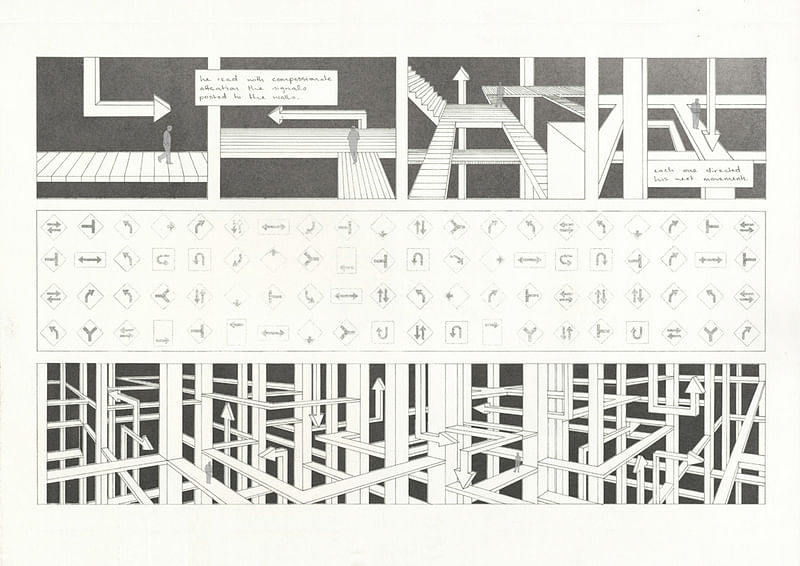
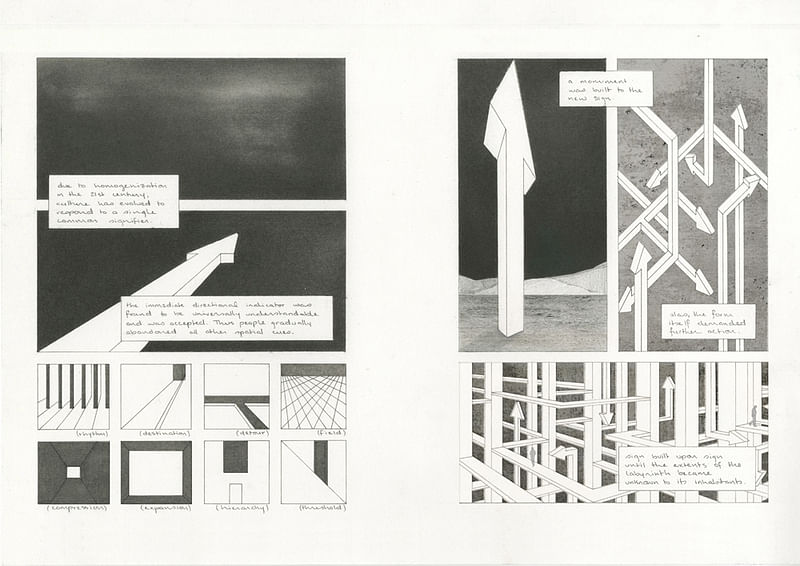
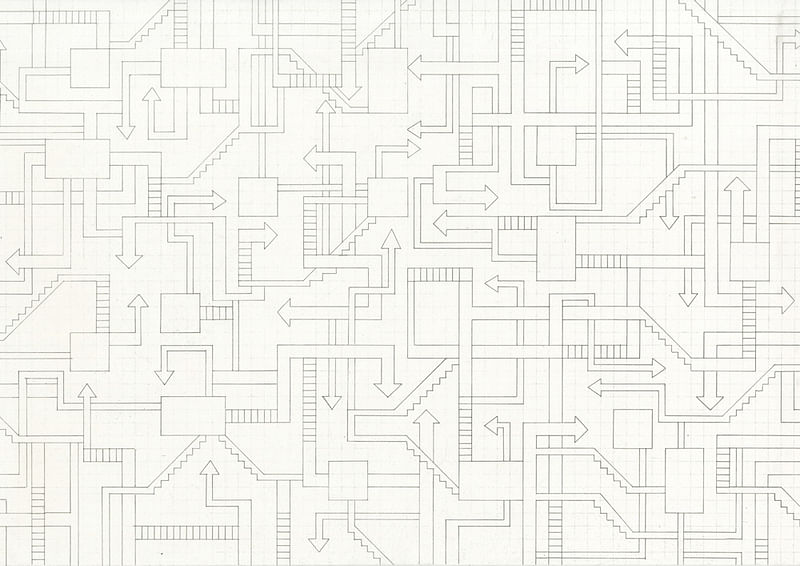
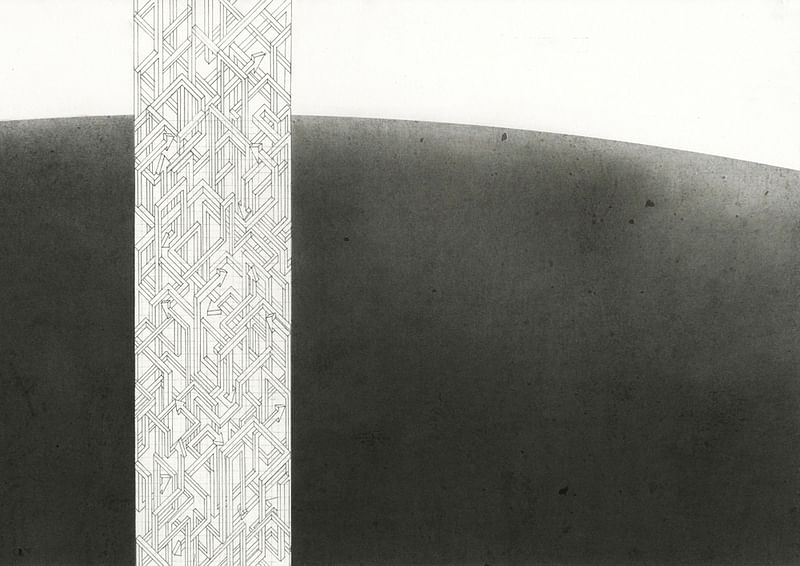
Second Prize: HERmITAGE IV | moving north
by Bernardo Robles Hidalgo, Aurore Vermylen (Spain / Belgium)
HERmITAGE IV | moving north
The evolving post-capitalist modes of production and consumption have inherited a psychological and physical terrain marked by the preceding capitalist order. Moving forward – and moving north – we argue that the post-capitalist path ought to capitalize on this terrain, and profit from the precedent.
The capitalist plundering of natural resources has devastated the environment, irreversibly changed the climate, and altered lifestyles; and many nations are scraping the bottom of the barrel when it comes to natural resources. But all is not lost. There is one region where we can turn this tragedy into a triumph: just look north!
The Arctic is a veritable treasure trove of natural resources. But the seemingly inhospitable and previously insurmountable ice cover made it near impossible for alien stakeholders to access. The Arctic is however heating up faster than any other region in the world, and the ice cover is dramatically – and conveniently – diminishing. Consequently, the resources are made more accessible, and new seaways are opening, linking The Arctic with the rest of the world.
Heritage IV offers a post-capitalist overture: reconciling the changing environmental terrain with contemporary ecological, cultural, commercial, militaristic, and political agendas, while catering to the local Inuit population.
Heritage IV is just the tip of the iceberg.
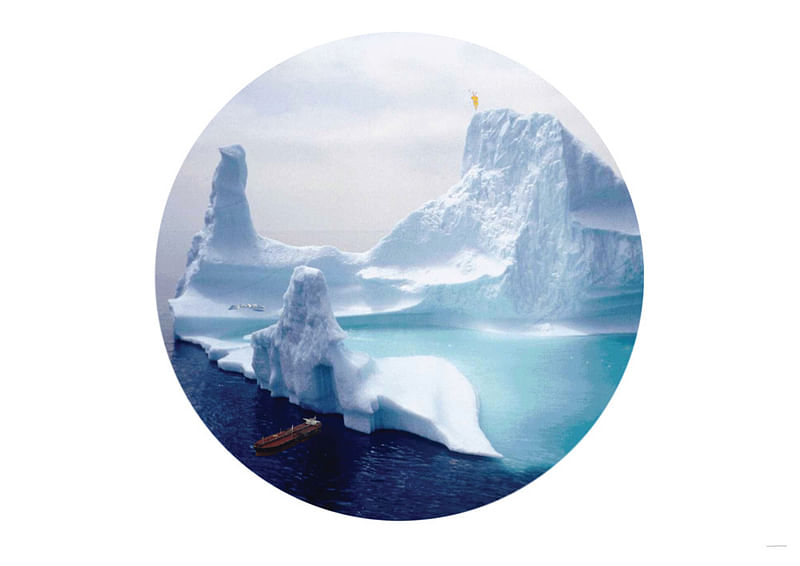
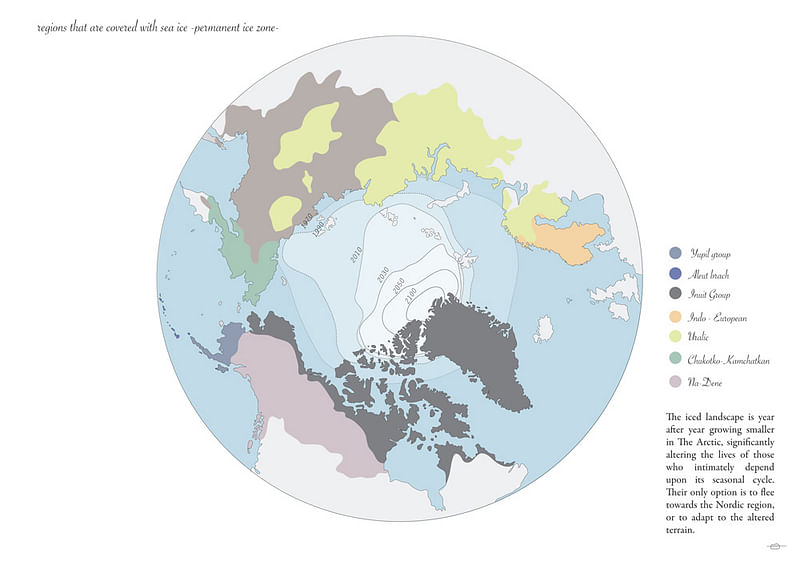
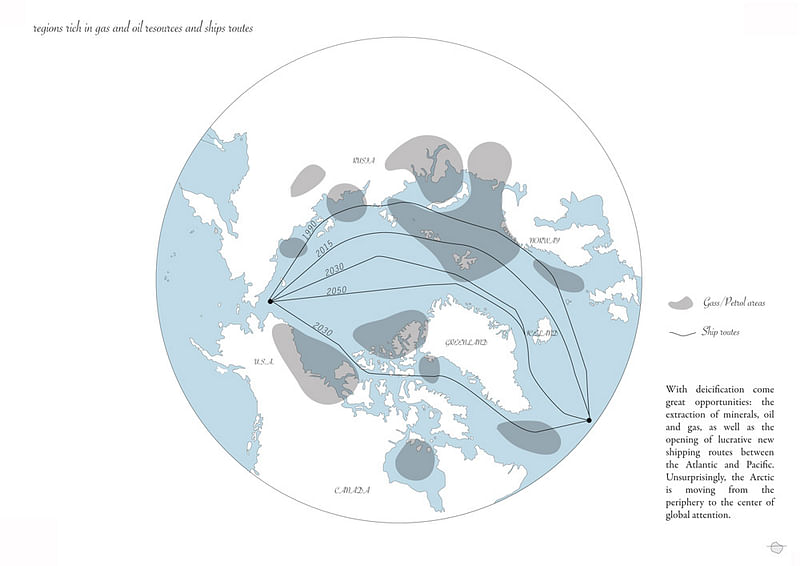
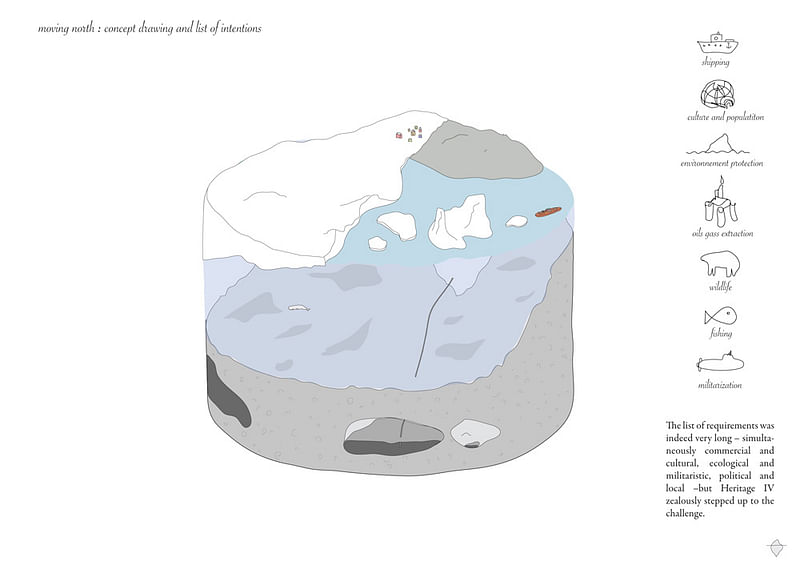
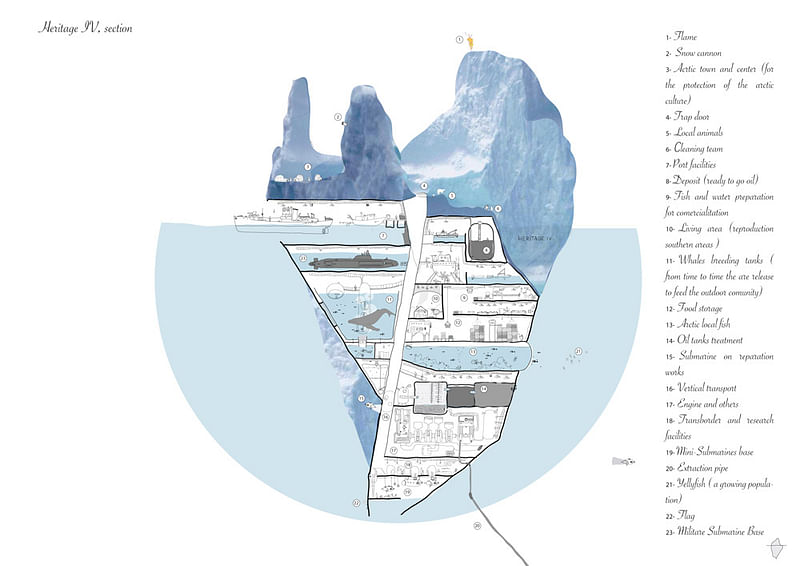
Second Prize: Techno_logic_city
by Boris Lefevre, Charly Duchosal (France / Switzerland)
Since the invention of the wheel, passing through the boat, bicycle, the train, the telegraph, the elevator, the airplane, or the massive diffusion of telecommunications and car industry; speed movement of people has never stopped continuing to increase.
Technological advances gave them the opportunity to travel more and faster to have access to always more exotic goods, to real time information .
Possibilities of social relations have multiplied.
This acceleration has enabled for men to appropriate itself a space, an always larger world, but also to live in larger cities. Daily activities of people have been scattered in space, thereby allowing the spatial distribution of the components constituting the city.
The village became city. This city has become megalopolis.
With the collapse of the communist bloc and the emergence of the Internet, we have pasted to the age of globality. The concepts of elsewhere, of the unknown, of “still inaccessible" began to disappear from our imaginary.
At the “real time" era, the effects of the increased speed have been reversed.
In a world limited to itself, the acceleration stopped expanding the space but started contracting it.
The world is our city.
A walled city whose techno-scientific rationalization' logic takes control.
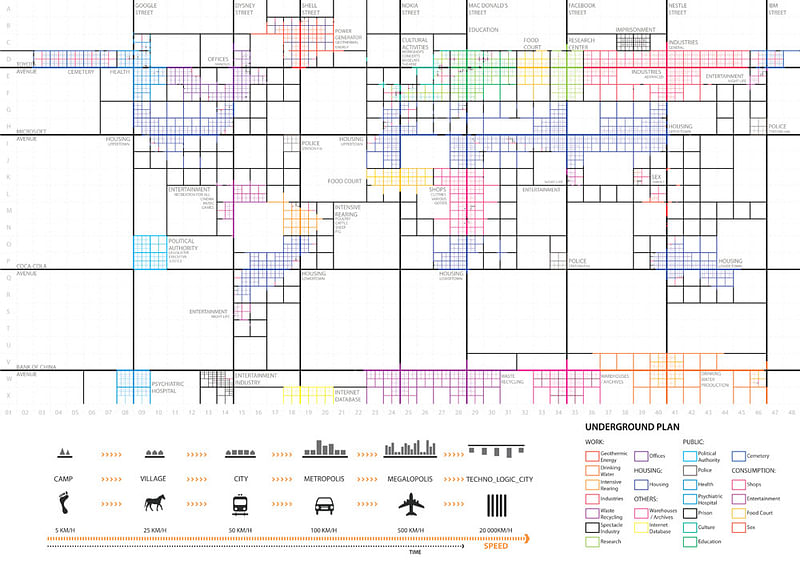
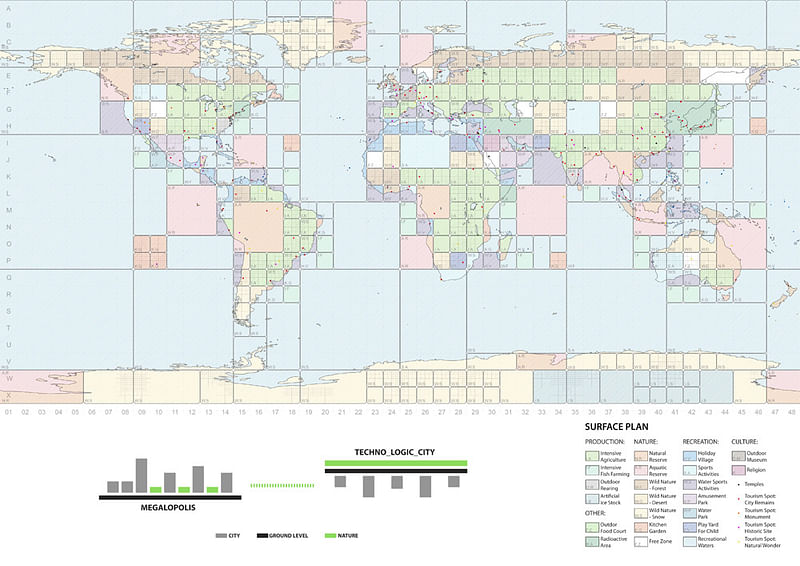
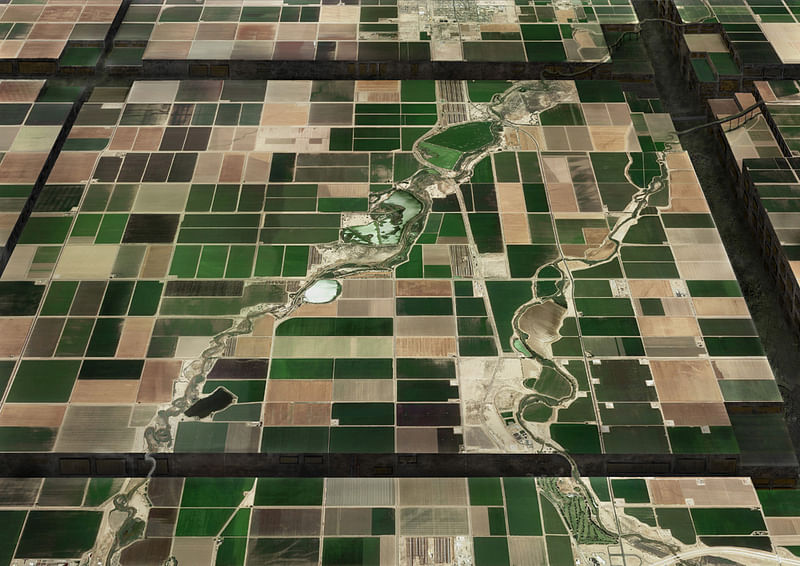
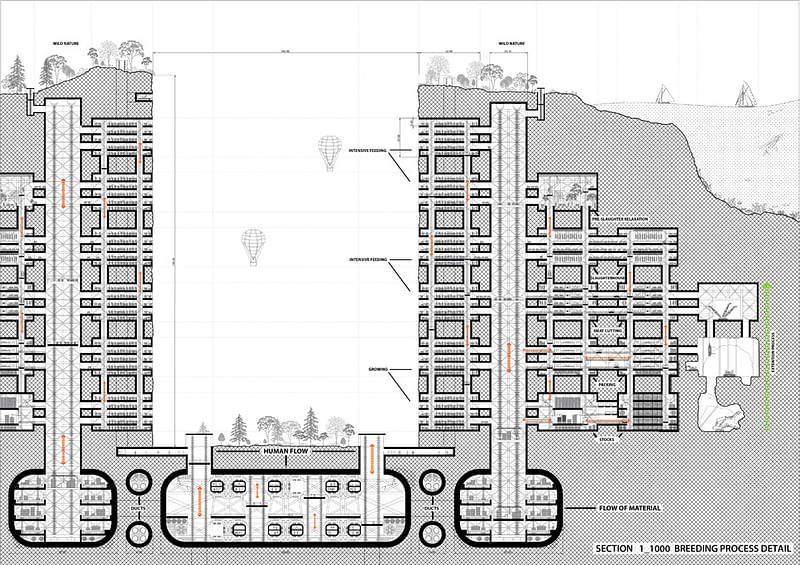
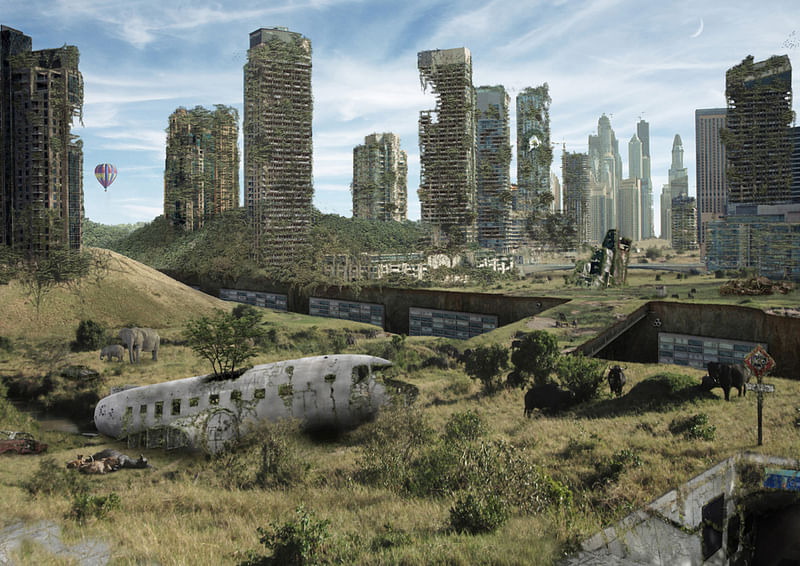
All images courtesy of POST+CAPITALIST CITY.

Share
0 Comments
Comment as :